Erika Marthins uses edible robotics to create sensory desserts
ÉCAL student Erika Marthins has combined a series of different technologies with food to create three interactive desserts that move, make noise and refract light.
Aiming to offer interesting alternatives to the average sweet treat, Marthins used edible robotics, light-shaping technology, and digital data information in the making of each dish.
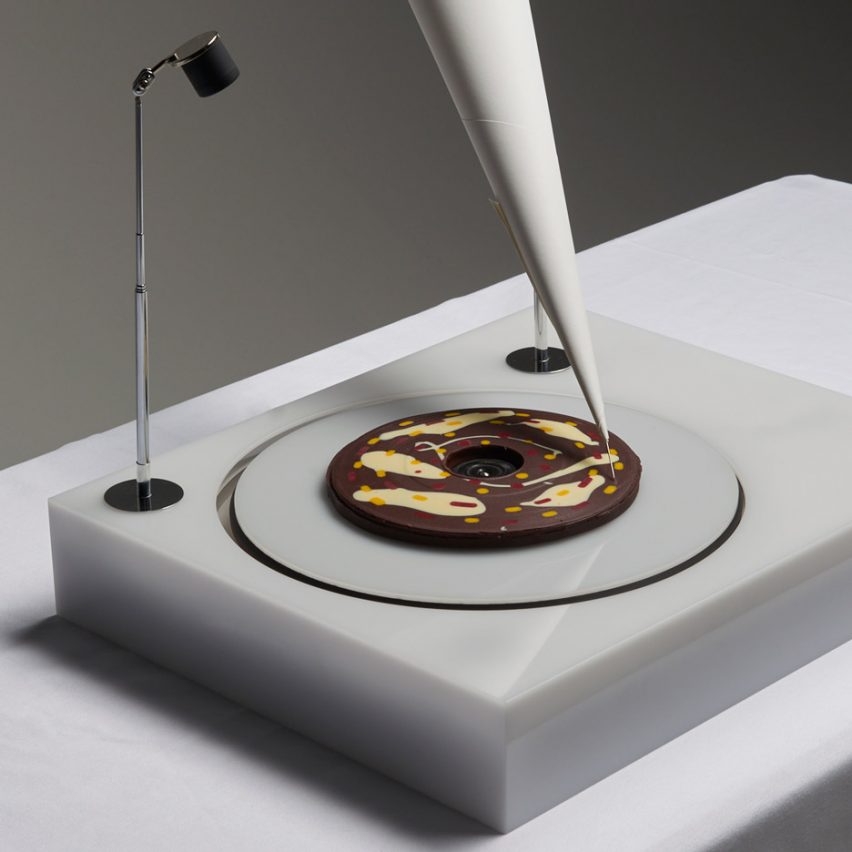
The project, called Déguster l'augmenté, consists of a moving gelatin dessert, a light-refracting lollipop, and a chocolate record. All three are completely edible, as there are no electronics included in the food itself.
Marthins describes each piece as being a "compressed bite of edible culture", which can be customised to suit the tastes of each diner.
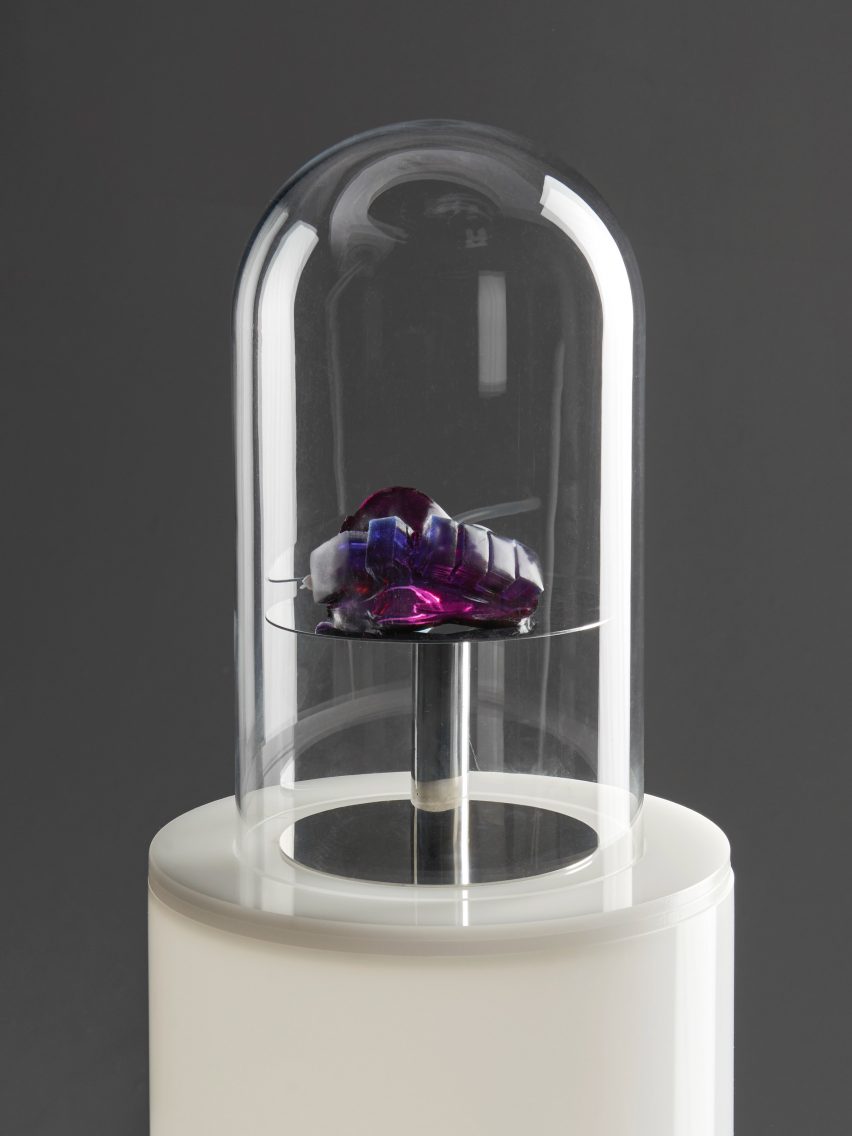
"Augmented food brings a new dimension to a dish, something that I think could be opened up as a new practice, one that is different to molecular cuisine," Marthins told Dezeen.
"I wanted to create a different personalised experience that changes our idea of how to eat and consume food, and also of our relationship with technology," she added.
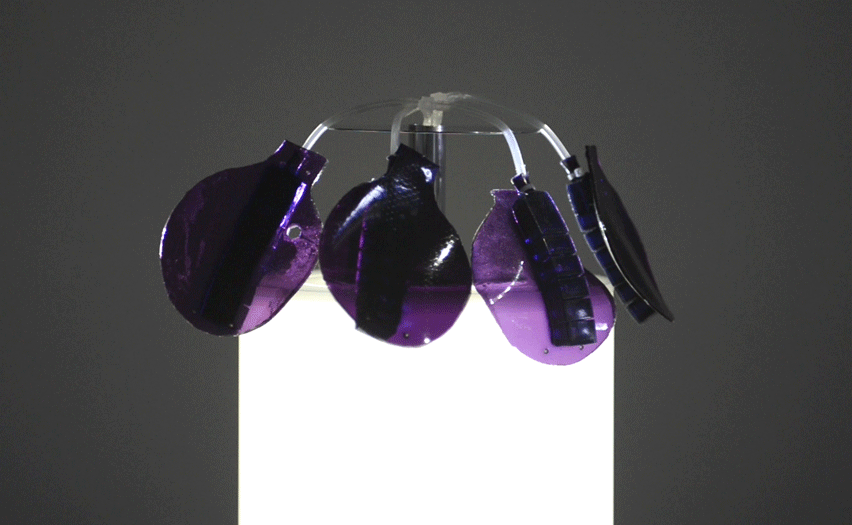
The first food experience named Dessert à l'Air is an animated dessert, which moves by way of edible robotic technology and actuators made from gelatin.
Using only gelatin and air, the dish features purple three-dimensional jelly-like cubes mounted on a circular surface that – when in motion – appear much like octopus tentacles.
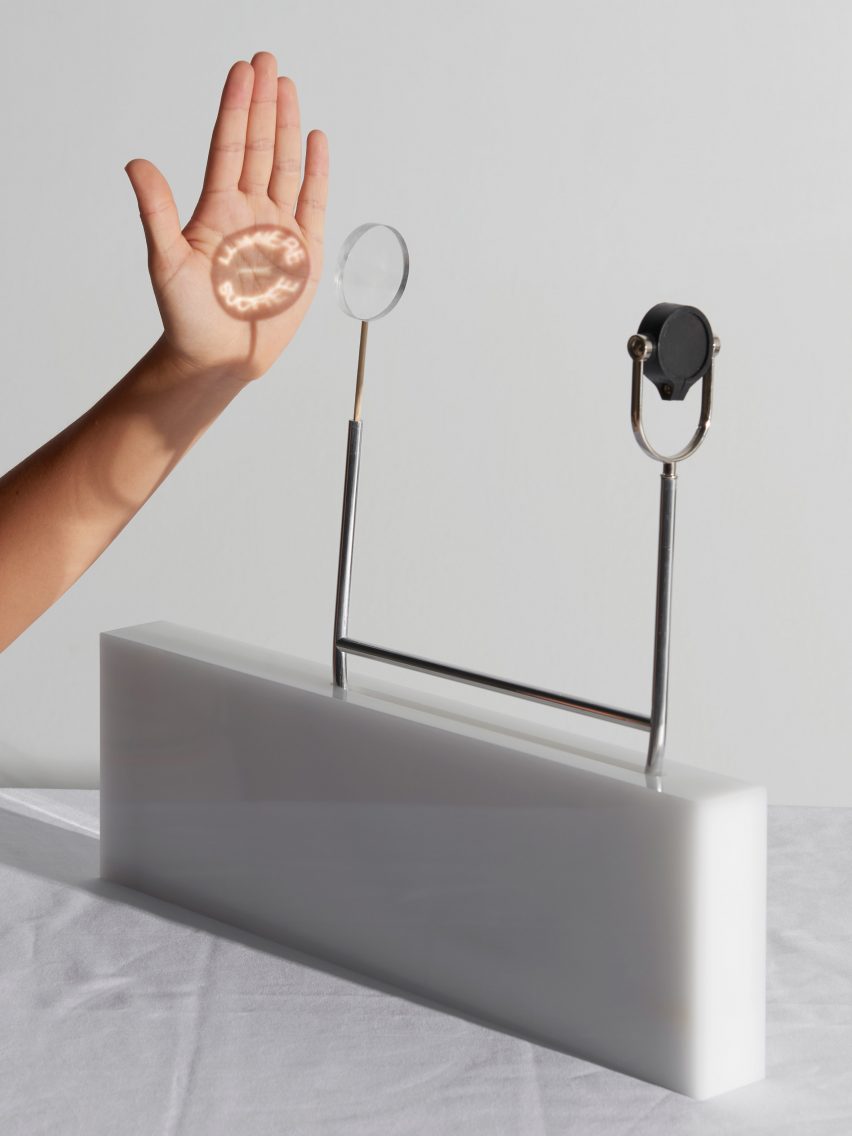
The second dessert saw Marthins embed a hidden message inside a lollipop. When a light is shone through the sweet, it refracts to reveal a concealed message that reads "Lumière Sucrée".
To create this, she worked alongside tech company Rayform, which applied its light-shaping technology to modify the lollipop's surface.
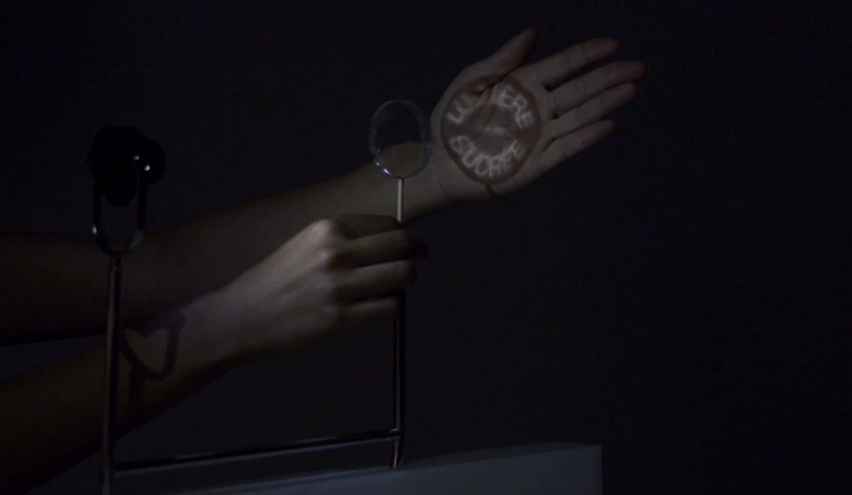
The process saw computer algorithms calculate the surface layout needed to produce the desired image on the lollipop. This results in a 3D file that can be fabricated mathematically onto the lollipop's face, so that when light rays hit the transparent surface, they are redirected to cast an image onto the surface behind.
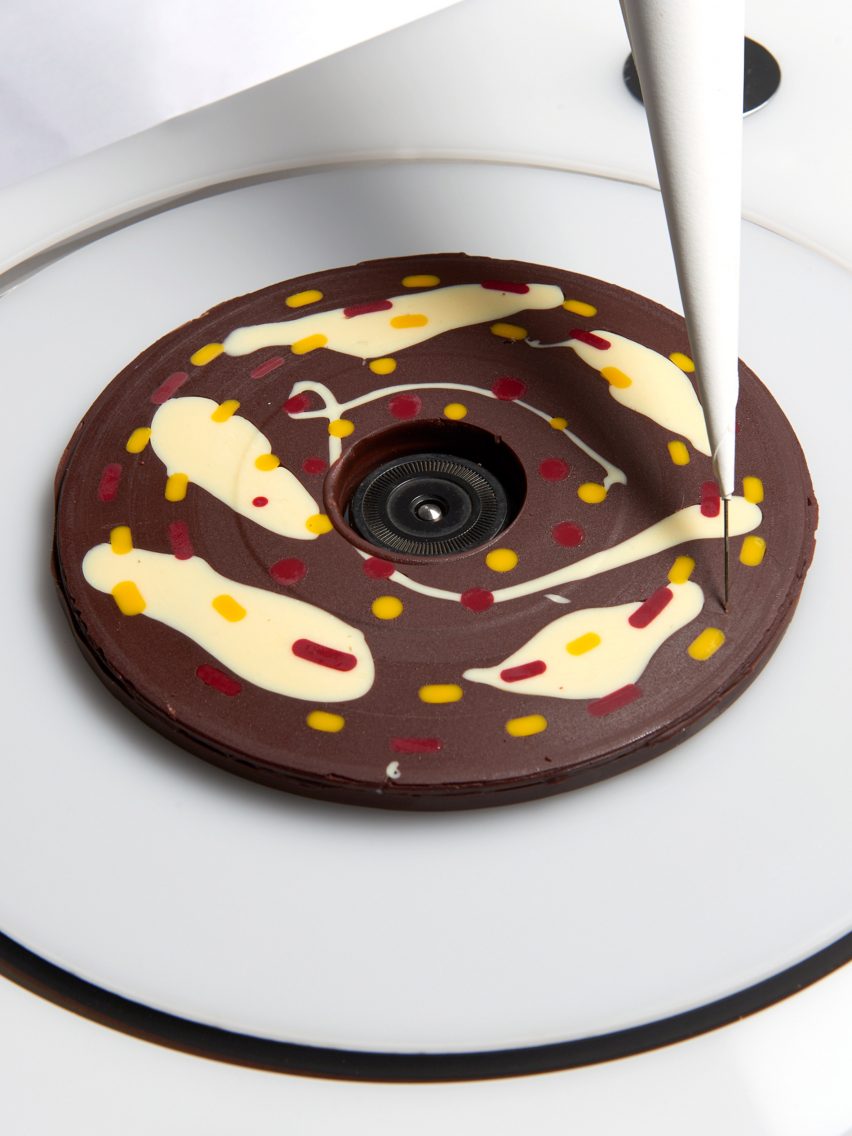
The last dessert Marthins created is a record made of chocolate, which she says allows the diner to not only hear, but to also taste sound.
In the same way that vinyl records function, the sound made by the Mange Disque is made by a series of grooves on the surface of the chocolate.
As the record needle touches the moving surface of the chocolate disc, a high-pitched wavering sound is produced.
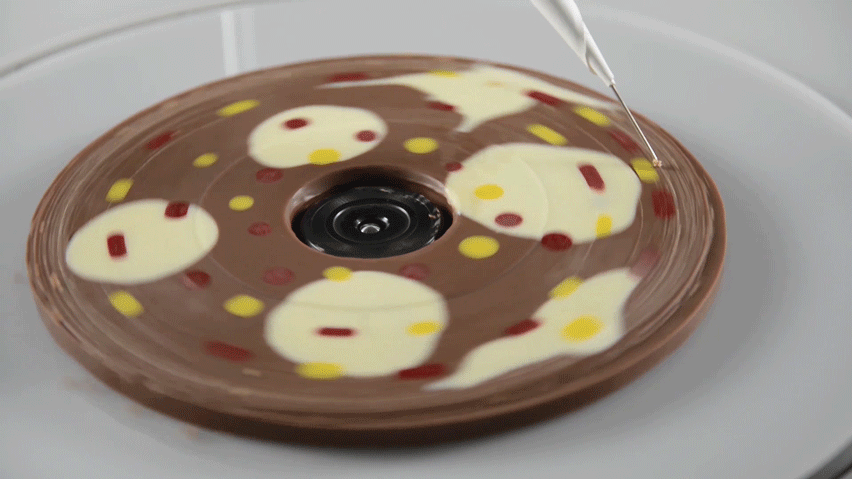
More and more designers are channelling their design skills into food to create a more inviting culinary experience.
Architect-turned-patisserie chef Dinara Kasko transformed the multilayered, three-dimensional works of artist José Margulis into edible Kinetic Tarts.